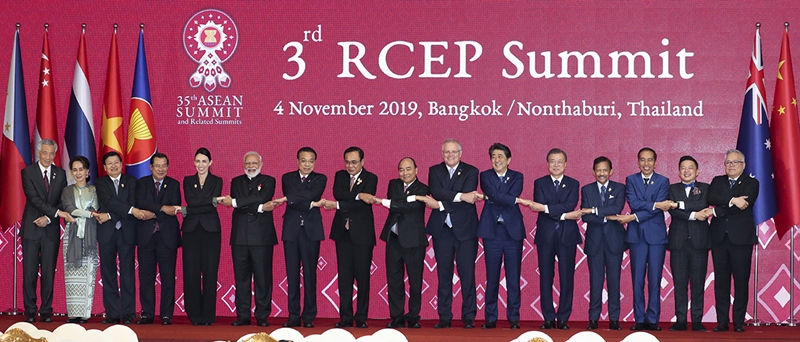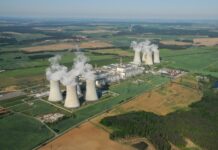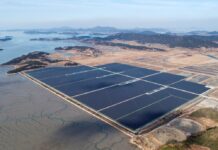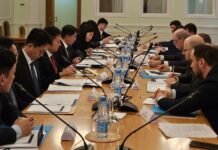
President Moon Jae-in (fifth from the right) on Nov. 4 holds hands with leaders of countries participating at the Regional Comprehensive Economic Partnership (RCEP) Summit in Bangkok, Thailand. (Cheong Wa Dae)
By Lee Kyoung Mi and Lee Jihae
Negotiations on the Regional Comprehensive Economic Partnership (RCEP), the world’s largest free trade agreement, were completed on Nov. 4 in Bangkok, Thailand, during the RCEP’s third summit.
An agreement was reached on the deal’s ratification among the participation nations of Korea, China, Japan, Australia, New Zealand, India and the ten member states of the Association of Southeast Asian Nations (ASEAN), but India opted not to join the trading bloc.
President Moon Jae-in said, “The conclusion of the negotiations has led to the beginning of the world’s largest free trade agreement. I hope that we build one economic cooperation zone where we respect each other’s varying levels of economic development, culture and diverse systems.”
“Trade barriers will be lowered and the depth of exchanges and cooperation deepened.”
The president added, “I hope we jointly overcome the global economic downturn and the value of free trade spreads further.”
Leaders of the nations taking part in the summit emphasized the importance of the RCEP in the face of threats to the global economy such as protectionism, as the accord is based on free and liberal standards. They agreed to quickly settle negotiations on matters such as market opening and to finalize the relevant accords by next year.
The heads of state also expressed intent to cooperate with India on relevant issues. New Delhi opted not to ratify the agreement, citing its chronic trade deficit.
km137426@korea.kr























